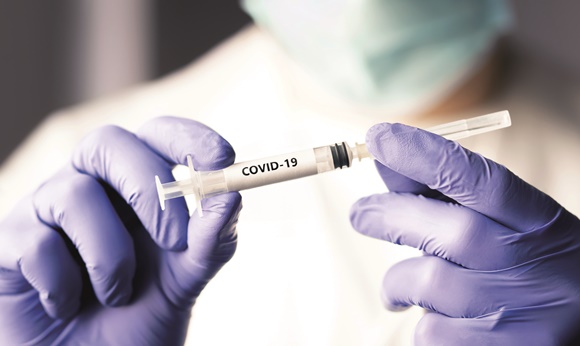
Shutterstock.com
Open access article
The Royal Pharmaceutical Society has made this article free to access in order to help healthcare professionals stay informed about an issue of national importance. To learn more about coronavirus, please visit: https://www.rpharms.com/resources/pharmacy-guides/wuhan-novel-coronavirus
The Royal Pharmaceutical Society (RPS) has said it maintains its support for leaving up to 12 weeks between administering doses of COVID-19 vaccines, despite pressure from some quarters to reduce the gap.
The British Medical Association (BMA) has called for “a dialogue” with the government over halving the maximum interval between doses of the Pfizer/BioNTech vaccine, from 12 weeks to 6.
On 21 January 2021, the Centers for Disease Control and Prevention (CDC) updated its recommendations for intervals between the first and second dose of the Pfizer/BioNTech and Moderna COVID-19 vaccines in the US, stating that the second dose should be given within six weeks, and the European Medicines Agency has also said that the gap between the first and second doses should not exceed 42 days.
Speaking to Sky News on 23 January 2021, Chaand Nagpaul, council chair of the BMA, said the BMA had written to the UK chief medical officers about the 12-week interval, asking them to “reconsider the decision”.
Current UK-wide advice, based on a decision from the Joint Committee for Vaccination and Immunisation (JCVI), is that second doses of both the Pizer/BioNTech and University of Oxford/AstraZeneca vaccines should be “routinely scheduled within 4 and 12 weeks after the first dose”.
Gino Martini, chief scientist at the RPS, said it continued to support the government’s position on administering the second dose.
“The RPS will continually review this position on the dosing interval as and when evidence is provided — it is vital that we inoculate as many vulnerable people as fast as we can,” he said.
In a position statement updated on 19 January 2021, the BMA said there was “a lack of data” on the impact of increasing the interval between doses beyond 42 days.
“In line with WHO [World Health Organization] recommendations for this vaccine — that the second dose should be given within 21–28 days or as soon as possible thereafter. We will be pushing for individuals to receive their second dose as close as possible to the original schedule.
“With the AstraZeneca vaccine there is some evidence that a longer interval between the first and second dose, such as twelve weeks, promotes a stronger immune response.”
The JCVI advice, published on 31 December 2020, said that given the data available, and evidence from the use of many other vaccines, the maximum interval between the first and second doses should be 12 weeks for both the Pfizer/BioNTech and Oxford/AstraZeneca vaccines.
“It can be assumed that protection from the first dose will wane in the medium term, and the second dose will still be required to provide more durable protection,” it said.
“The committee advises initially prioritising delivery of the first vaccine dose as this is highly likely to have a greater public health impact in the short term and reduce the number of preventable deaths from COVID-19.”


